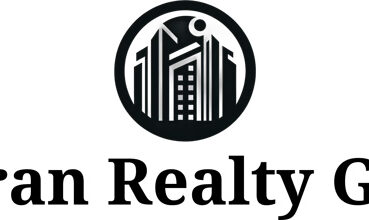What started as an effort to democratize iBuying for real estate agents has evolved into a rapidly growing FinTech platform serving real estate investors. homebldr, founded in February 2021,...
An Expert Guide to Finding Wholesale Properties


Are you looking to make your first move into wholesaling real estate?
Wholesaling real estate can be extremely profitable, with the possibility of earning tens of thousands of dollars on a single property transaction.
However, it’s important to understand what you’re getting yourself into. For example, nationwide foreclosure auction volumes are currently at 49% of pre-pandemic levels, while distressed bank-owned property auction volumes are at 38%.
Moreover, the market for commercial distressed properties grew to $8.5 billion by the end of 2023. These properties primarily include offices, retail spaces, hotels, apartments, and industrial buildings.
Additionally, investing in wholesale properties isn’t the same as traditional real estate investments. Confused? Don’t worry; in this article, we’ll provide a complete overview of how to find and trade wholesale real estate.
Key Takeaways
- Wholesale real estate involves finding deeply discounted properties and securing them under contract with the intent to sell the contract to another investor for a profit.
- Knowing how to wholesale homes involves finding potential wholesale deals, such as via networking, online platforms, and direct mail campaigns.
- Investing in wholesale properties offers several advantages, such as requiring a low initial investment, quick returns, and minimal risks.
- The process involves due diligence, assessing repair costs, calculating profit margins, and identifying potential risks.
What is Wholesale Real Estate?
Wholesale real estate involves finding deeply discounted properties and securing them under contract, with the intent of quickly selling the contract to another investor.
Unlike traditional real estate transactions, wholesalers don’t purchase properties outright. Instead, they act as intermediaries and earn a profit by assigning the contract to an end buyer for a higher price than the initial agreement.
How Wholesaling Works
The wholesaling process typically follows these steps:
- Searching for distressed or undervalued properties.
- Negotiating purchase agreements with sellers at a discounted price.
- Assigning the purchase contract to another investor while the wholesaler charges an assignment fee.
- Closing the deal directly with the seller.
Benefits of Investing in Wholesale Properties
Investing in wholesale properties offers several advantages, such as:
- Low initial investment: Wholesalers don’t need substantial capital to purchase properties outright. Rather, they only need to secure the property under contract, which requires minimal upfront costs.
- Quick returns: Wholesale deals often close within a few weeks, which allows wholesalers to earn profits quickly compared to traditional real estate investments.
- Minimal risk: Since wholesalers don’t purchase the properties, they avoid the risks associated with property ownership, such as market fluctuations and maintenance costs.
- Networking opportunities: Wholesaling helps build valuable connections with real estate investors, agents, and other industry professionals. This opens doors for future opportunities.
Strategies to Find Wholesale Properties
The success or failure of real estate wholesaling depends on your ability to source undervalued properties that investors are looking for. Here are some tried and tested ways to start building referral networks to do this.
Networking with Real Estate Agents and Investors
Building relationships with real estate agents and investors is a key strategy for finding wholesale properties. Agents often come across distressed properties and motivated sellers, which makes them valuable lead sources.
Similarly, investors may have properties they want to offload quickly, which can present new wholesale opportunities.
Attending Local Real Estate Meetups and Events
Participating in local real estate meetups and events allows you to connect with like-minded individuals and professionals.
Additionally, these gatherings are excellent for networking, sharing knowledge, and learning about new opportunities in the market.
Utilizing Online Real Estate Platforms and Websites
Online platforms such as Zillow, Redfin, and specialized wholesale property websites are helpful tools for finding wholesale deals. More specifically, these platforms offer filters to search for distressed properties, foreclosures, and properties sold below market value.
Additionally, Craigslist and Facebook Marketplace can provide local listings and opportunities for direct communication with sellers.
Pro tip: While these platforms can be useful tools, don’t rely on them, as they are often overcrowded with other wholesalers hunting out the same deals as you. A much better strategy is to build your own referral networks through relationship building and networking.
Driving for Dollars and Identifying Distressed Properties
“Driving for dollars” involves driving through neighborhoods to spot distressed properties that may be suitable for wholesaling. Look for signs of neglect, such as overgrown lawns, boarded-up windows, and piled-up mail.
Once identified, you can contact the property owner to express your interest in purchasing their property.
Direct Mail Campaigns Targeting Motivated Sellers
Direct mail campaigns can effectively reach motivated sellers, such as homeowners facing foreclosure, absentee owners, or those with properties in disrepair.
Moreover, crafting personalized and compelling letters or postcards can prompt these sellers to contact you. This provides an opportunity to negotiate a wholesale deal.
Leveraging Social Media to Connect with Wholesalers
Social media platforms like Facebook, LinkedIn, and Instagram are powerful tools for networking and finding wholesale properties. Join real estate groups, follow industry influencers, and participate in discussions to expand your network.
Plus, sharing your expertise and engaging with others can lead to valuable connections and potential deals.
Analyzing and Evaluating Wholesale Deals
Once you’ve built up a steady referral network of wholesale properties, the next step is to carefully analyze and evaluate each deal, to decide whether or not it represents a good investment opportunity.
Here’s how to do this.
Conducting Due Diligence on Wholesale Properties
Thorough due diligence is important when analyzing potential wholesale deals. Begin by verifying property details, such as ownership, liens, and taxes.
Also, research the neighborhood to understand market trends and comparable sales, and also visit the property to assess its condition and identify any obvious issues. This initial investigation helps ensure that the property is a viable investment.
Assessing Repair Costs and After-Repair Value (ARV)
Accurately estimating repair costs is important for evaluating a wholesale deal. Walk through the property with a contractor or use a detailed checklist to note necessary repairs and upgrades.
Calculate the total repair costs and then determine the ARV, which is the estimated value of the property once renovations are complete. Also, use comparable sales data from the local market to estimate the ARV accurately.
Calculating Potential Profit Margins
In order to determine if a wholesale deal will be profitable, you’ll need to calculate the potential profit margins. Use the following formula to do this:
Profit = ARV − (Purchase Price + Repair Costs + Closing Costs + Holding Costs)
Also, ensure the deal meets your desired profit margin before proceeding. Many wholesalers aim for a margin of at least 10-15% to account for any unexpected expenses.
Identifying Red Flags and Potential Risks
Be vigilant for red flags and potential risks that could jeopardize the deal. Common red flags include:
- Title issues such as liens or unresolved legal disputes.
- Structural problems requiring extensive and costly repairs.
- Unrealistic ARV expectations not supported by market data.
- Sellers who are uncooperative or unwilling to provide necessary documentation.
Additionally, you should thoroughly investigate these issues before committing to a deal. You can mitigate these risks by consulting with experienced real estate attorneys or seasoned investors.
Successfully Closing Wholesale Deals
So, you’ve learned how to find wholesale houses and identify the right deals. Now what? Closing a deal is the final step in the process. Below, we discuss how to accomplish this.
Navigating the Contract and Assignment Process
The contract and assignment process is a critical step in closing a wholesale deal.
First, secure a purchase agreement with the seller that includes an assignment clause. This allows you to transfer the contract to another buyer.
Once you have an interested end buyer, draft an assignment agreement outlining the terms, including the assignment fee.
Also, ensure all parties sign the necessary documents and understand their obligations. This clarity helps prevent misunderstandings and legal issues.
Importance of Having a Solid Buyer’s List
A solid buyer’s list is important for quickly closing wholesale deals. This ensures you can swiftly assign contracts and close deals efficiently. More specifically, a buyer’s list should include contact information for investors actively seeking properties in your target markets.
You can build and maintain your list by networking at real estate events, joining investment groups, and leveraging social media platforms.
Additionally, you should regularly update your contacts and stay in touch with your buyers to understand their evolving preferences and investment criteria.
Tips for Efficient Communication and Transaction Management
Effective communication and transaction management are a must for smooth and successful wholesale deals. Keep all parties informed throughout the process. Also, use project management tools or CRM systems to track communications, deadlines, and tasks.
Here are some tips for managing transactions effectively:
- Respond to inquiries and follow up on pending tasks promptly to keep the deal moving forward.
- Be open about any issues or delays that arise. Transparency fosters trust and helps address problems quickly.
- Keep meticulous records of all communications, agreements, and payments. Organized documentation is vital for resolving disputes and ensuring compliance.
- Maintain a professional demeanor in all interactions. Being reliable and courteous enhances your reputation and encourages repeat business.
Bottom Line
Knowing how to find a buyer for wholesale real estate involves more than just a keen eye for distressed properties; it requires dedication, strategic networking, and a proactive approach to identifying and closing deals.
Equip yourself with the right knowledge, connect with seasoned wholesalers, and leverage various resources—from online platforms to real estate meetups.
By consistently applying these strategies, you’ll learn how to find investors for wholesale real estate, negotiate effectively, and expand your investment portfolio.
Similar Articles
Explore similar articles from Our Team of Experts.


Are you looking for a real estate investment opportunity with a Southern charm? Consider wholesaling real estate in Georgia. The Peach State is a goldmine for wholesalers. It has a hig...


Choosing the right financing option is vital to succeeding with real estate investing, If you plan on flipping houses, you could see a return on investment at over 75%. However, your R...


Are you looking to invest in real estate but not sure where to start? Consider Kansas City, Missouri — a Midwestern gem beaming with opportunity. As a promising destination for...


Following in his grandfather’s footsteps, Alex Mehran Jr. brings a distinctly personal approach to leading Mehran Realty Group, a comprehensive property management and consulting firm ...




